
The summit focuses on long-term integration, inclusivity and responding to growing geopolitical and economic challenges
by SHAUQI WAHAB
 THE 46th ASEAN Summit, held from May 26 to 27, 2025, closed its curtains with several key developments shaping the regional bloc’s future.
THE 46th ASEAN Summit, held from May 26 to 27, 2025, closed its curtains with several key developments shaping the regional bloc’s future.
The summit, hosted under Malaysia’s ASEAN chairmanship, focused on long-term integration, inclusivity and responding to growing geopolitical and economic challenges.
Delegates from member states converged at the Kuala Lumpur Convention Centre (KLCC) to discuss issues, policies and finding a common ground to help the region grow despite being smaller in size compared to other regions.
KL Declaration a New Roadmap
At the heart of the summit was the endorsement of the Kuala Lumpur (KL) Declaration on ASEAN 2045: Our Shared Future, a key document that sets the strategic direction for ASEAN for the next two decades.
Building on 2015’s ASEAN 2025 plan, the new declaration outlines over 500 strategic steps across the three ASEAN community pillars — political-security, economic and socio-cultural.
The declaration aims to transform ASEAN into a resilient, inclusive, innovative and dynamic community by 2045, focusing on deeper economic integration, digital transformation, sustainability, regional peace and social equity.
“We acknowledged the complementarities initiative which maps the synergies between the ASEAN Community Vision 2025 and the United Nations (UN) 2030 Agenda.
“We look forward to the development of the Complementarities Initiative 2.0 that will succeed the current roadmap and will address new priority areas in line with the ASEAN Community Vision 2045 and the pact for the future,” ASEAN leaders said in a joint statement at the end of the summit.
The declaration places a strong spotlight on strengthening ASEAN unity and centrality in shaping a rules-based regional order, while enhancing institutional capacity and coordination within ASEAN bodies.
On top of shared economic opportunities, it also includes sustainability, digital innovation and a recognition of the region’s role as an epicentre of growth in the Indo-Pacific that are shared equitably among ASEAN’s people.
Alongside the ASEAN Community Vision 2045, leaders endorsed the ASEAN political-security community, ASEAN economic community, ASEAN socio-cultural community and ASEAN connectivity strategic plans.
They are designed to work in tandem across all sectors and member states, with clear mandates for implementation, monitoring and mid-term review.
ASEAN also agreed to adopt the Initiative for ASEAN Integration (IAI) work plan V (2026-2030) at the next summit.
ASEAN leaders have made a clear statement: The region aims to remain united, relevant and people-focused over the next two decades.
Prime Minister (PM) Datuk Seri Anwar Ibrahim had high praises for the declaration, describing it as a bold and realistic plan to make ASEAN a strong centre of growth in the Indo-Pacific.
Timor-Leste Takes 1st Step as ASEAN’s 11th Member
Receiving unanimous support, Timor-Leste is on track to become a full member of ASEAN by the next summit in October 2025.
Anwar confirmed that ASEAN leaders have agreed in principle to Timor-Leste’s full admission, pending the fulfilment of final conditions outlined in the Full Membership Roadmap.
“The decision was clearly to agree that they would become accepted as full members by the next summit in October, of course subject to one or two actions or reforms to be undertaken, particularly one of the conditions of economic pillar,” he said at the summit’s closing press conference.
Timor-Leste’s application dates back to 2011 and it was granted observer status in 2022. The full membership roadmap outlines three key areas it must address — political-security, economic integration and socio-cultural cooperation.
While several progresses have been made, some reforms, especially in the economic pillar, remain pending.
Timor-Leste Foreign Minister Bendito dos Santos Freitas said the country’s ambition to join ASEAN extends beyond economic interests.
“It is about amplifying our voice in the region and aligning with ASEAN’s outlook on the Indo-Pacific,” he said.
Timor-Leste PM Kay Rala Xanana Gusmao and President Jose Ramos-Horta were also present at the summit and expressed confidence that full membership would be secured by the end of 2025.
This would mark a historic expansion of ASEAN, welcoming its first new member in more than two decades.
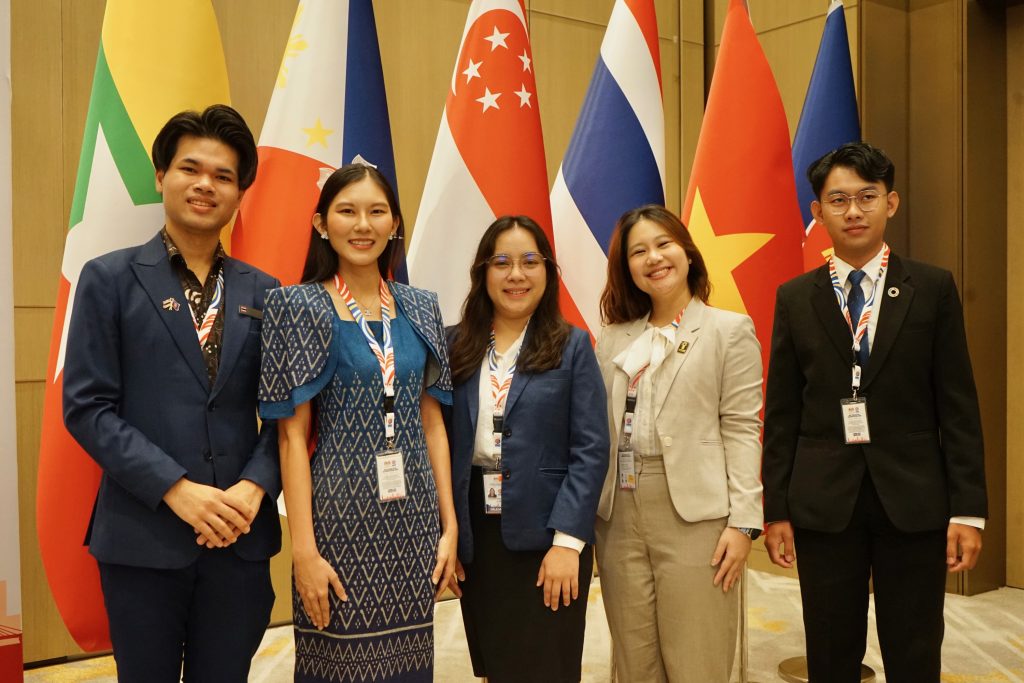
The summit includes sustainable youth participation through the 4th ASEAN Youth Dialogue (Pic by Muhd Amin Naharul / TMR)
ASEAN Urges Myanmar Ceasefire and Political Dialogue
ASEAN leaders renewed their call for the military junta to halt violence and commit to a nationwide ceasefire.
The leaders stressed the importance of inclusive dialogue involving all parties, including the Opposition National Unity Government.
Malaysia has played a vocal role by engaging with both the Myanmar military and the Opposition. Anwar urged the bloc to remain committed to the ASEAN Five-point Consensus, which calls for an end to violence, constructive dialogue and humanitarian aid access.
On the last day of the summit, he stated that ASEAN leaders had reached an agreement to pursue engagement with all parties involved in Myanmar.
“Now we have gone to a stage where both parties are now in consultation, although at the lower key level,” he said.
ASEAN-GCC-China Trilateral Summit: New Strategic Axis
For the first time, ASEAN held a trilateral summit with the Gulf Cooperation Council (GCC) and China.
The three regions represent a combined population of over two billion people and a collective GDP of more than US$25 trillion (RM109.25 trillion).
ASEAN-GCC-China leaders have reaffirmed their commitment to deepen trilateral collaboration in key areas including economic integration, energy security, sustainable development and peace-building.
Among the top issues discussed was the Israel-Palestine conflict.
The leaders expressed a unified position, condemning attacks on civilians, urging a permanent ceasefire in Gaza and reaffirming support for a two-state solution based on pre-1967 borders.
Economically, the summit produced commitments to strengthen trade and investment ties.
This includes accelerating the conclusion of free trade agreements (FTAs), enhancing regional value
chains and supporting the rules-based multilateral trading system.
“Priority will be given to reaffirming the central and indispensable role of the World Trade Organisation (WTO) at the core of the rules-based multilateral trading system, which provides a predictable, transparent, non-discriminatory and open global trading system,” they said in a joint statement.
Infrastructure and digital connectivity are set to be advanced via China’s Belt and Road Initiative and maritime cooperation, with discussions to explore the creation of a regional business council.
Countries pledged to collaborate on renewable energy (RE), clean fuels and cross-border infrastructure, while sharing green technology knowledge for just energy transitions.
The summit also focused on strengthening the digital economy, with leaders proposing a framework to support growth in artificial intelligence (AI), financial technology (fintech) and smart cities, alongside education and skills development programmes.
Finally, ASEAN-GCC-China leaders called for practical implementation of these goals through existing trilateral frameworks, welcomed the upcoming Asia Cooperation Dialogue Summit in Doha, Qatar, and recognised regional efforts across food security, trade and climate resilience.
Economic Integration Plan and Green Energy ASEAN unveiled a new economic integration strategy to deepen intra-bloc cooperation over the next five years.
The plan includes harmonising trade standards, removing non-tariff barriers, expanding digital trade frameworks and promoting innovation among small and medium enterprises.
The long-term goal is to position ASEAN as the world’s fourth-largest economy by 2045.
ASEAN also agreed that all future bilateral agreements with the US should not undermine the interests of other member states.
Several green agreements were concluded, including the renewables and interconnected sustainable energy (RISE) pact between Malaysia, Singapore and Vietnam.
The pact focuses on cross-border RE sharing and sustainable energy infrastructure.
Additionally, ASEAN endorsed an enhanced version of the ASEAN Power Grid plan and adopted the successor to the ASEAN Petroleum Security Agreement (APSA), reinforcing energy security in the region.
Youth, Parliamentarians and Business Voices Integrated
The summit also featured sessions with young leaders, private sector representatives under the ASEAN Business Advisory Council (ASEAN-BAC) and members of the ASEAN Inter-Parliamentary Assembly (AIPA).
Anwar said these engagements highlight ASEAN’s inclusive approach.
“We are stronger when our youth, businesses and lawmakers all have a seat at the table,” he said.
At the fourth ASEAN Youth Dialogue 2025, delegates preached for equitable, inclusive and sustainable youth participation and leadership to help foster the regional bloc’s socioeconomic development.
“We also strongly encourage member states to enhance the health and wellbeing of young people through targeted policies, initiatives and programmes that raise awareness on critical health issues,” they said jointly at the dialogue.
BIMP-EAGA, IMT-GT Focus on Subregional Growth
The Brunei Darussalam-Indonesia-Malaysia-Philippines East ASEAN Growth Area (BIMP-EAGA) and Indonesia-Malaysia-Thailand Growth Triangle (IMT-GT) also held their respective summits during the 46th ASEAN Summit week.
Leaders from the countries involved focused on boosting cross-border infrastructure, digital connectivity and climate-resilient development in these areas.
At the BIMP-EAGA summit, President of the Philippines Ferdinand Marcos Jr urged for greater innovation and political will.
“Let us take this opportunity to not only celebrate these milestones but also affirm our shared vision for a more integrated, prosperous and resilient BIMP-EAGA,” he said in his opening remarks chairing the BIMP-EAGA summit.
Malaysia pledged stronger support to the BIMP-EAGA Secretariat and called for more green investments and people-centric projects to reduce development gaps in less advanced regions.
- This article first appeared in The Malaysian Reserve weekly print edition
RELATED ARTICLES
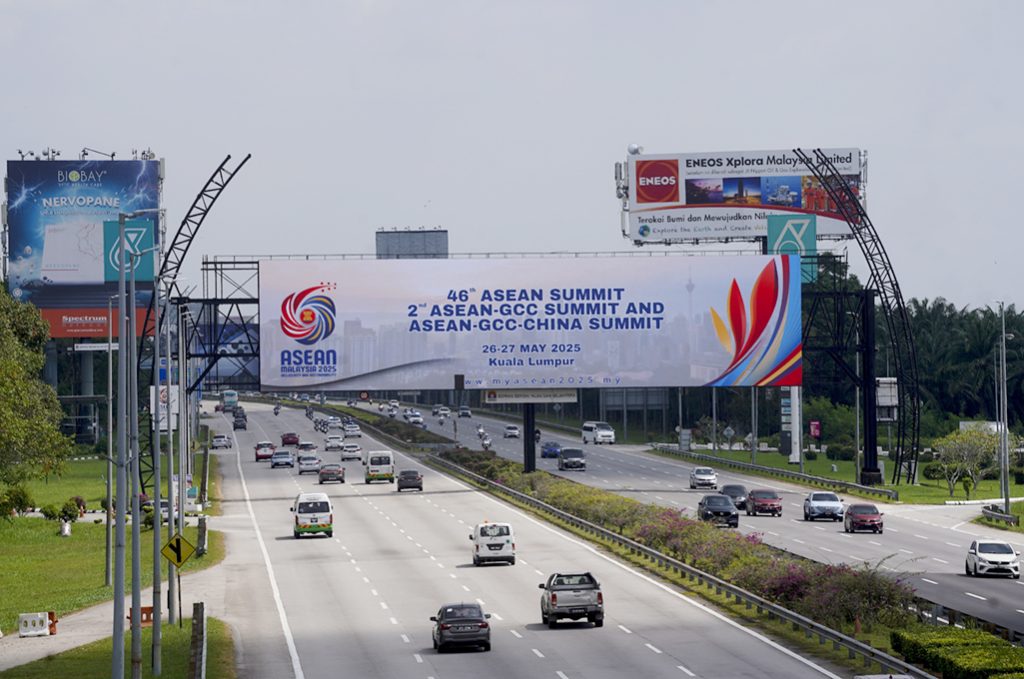
Chinese Premier, GCC leaders depart after ASEAN-GCC, ASEAN-GCC-China Summits
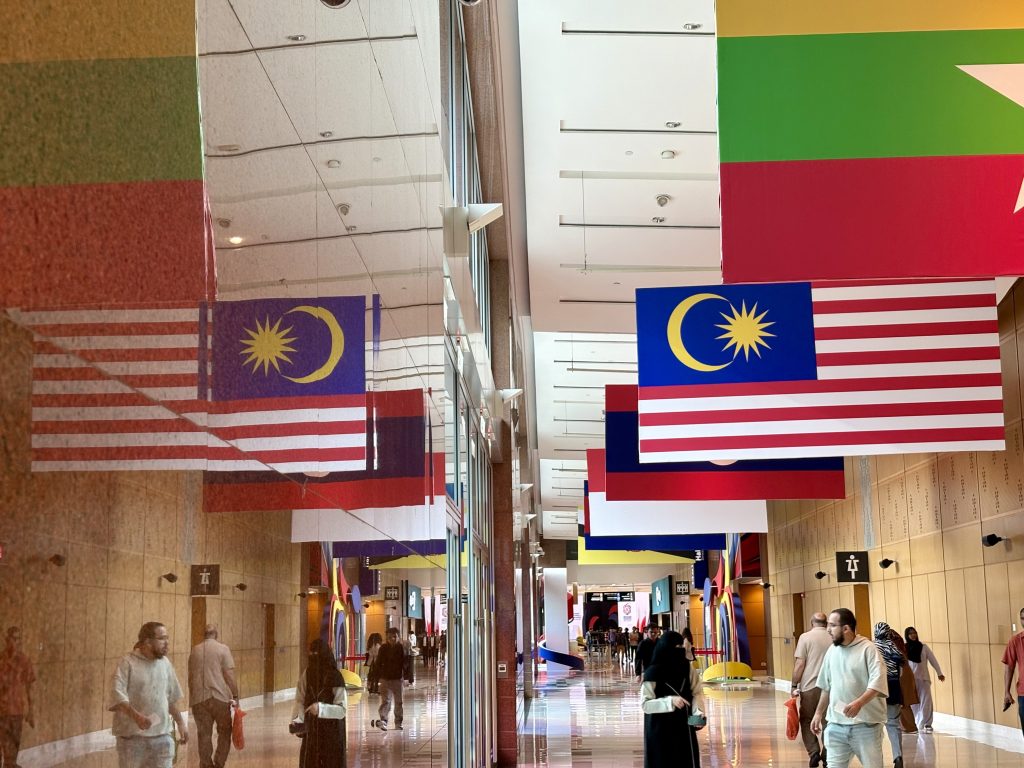
Summit and sambal: KLCC reflects real ASEAN spirit
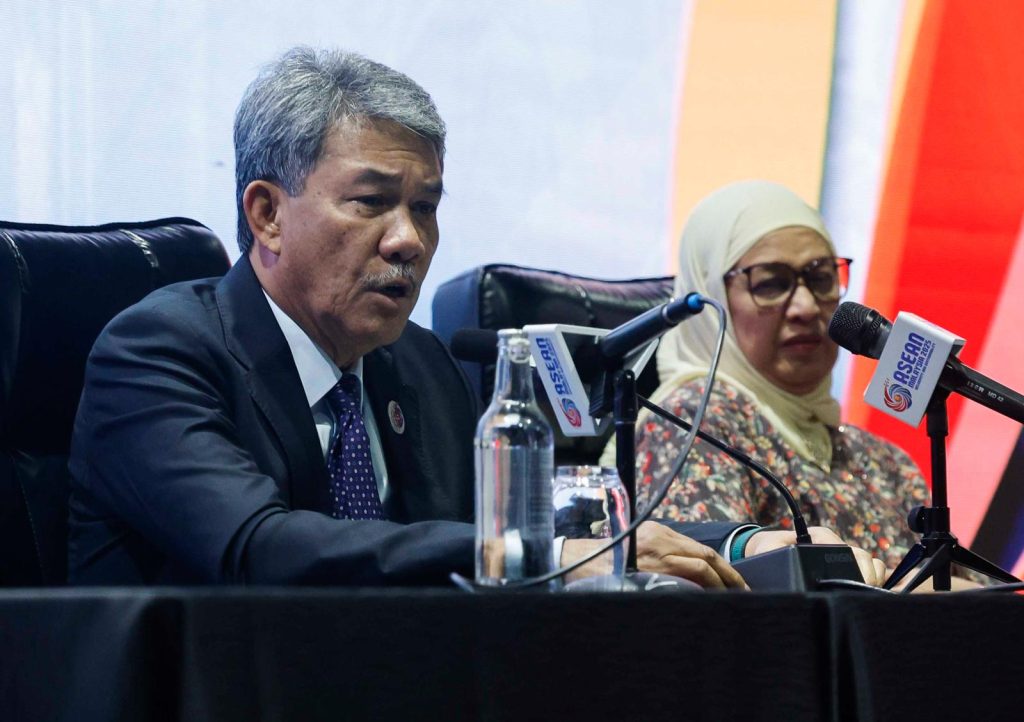
No action taken against Myanmar despite repeated violations, says Mohamad
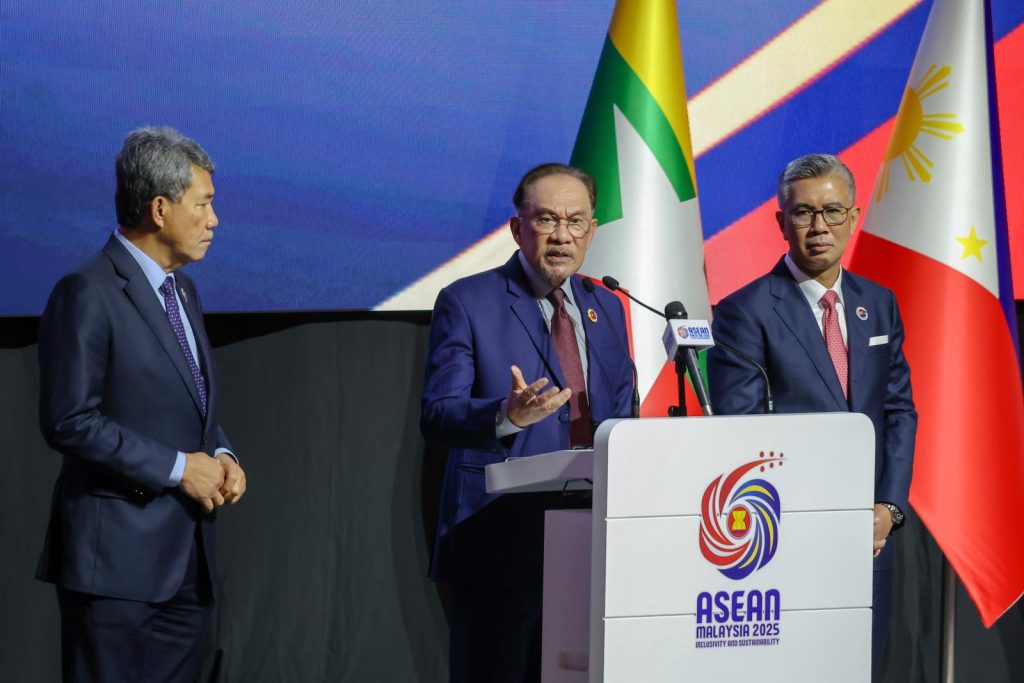
Anwar: ASEAN achieves key goals with stronger GCC and China ties
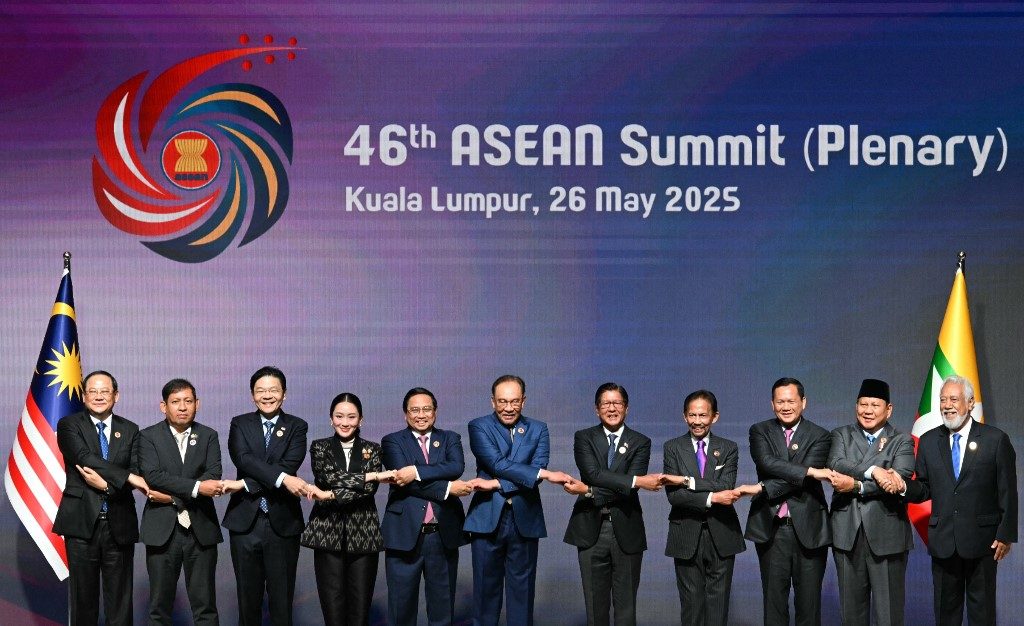
ASEAN leaders assemble in KL today for key summit related meetings
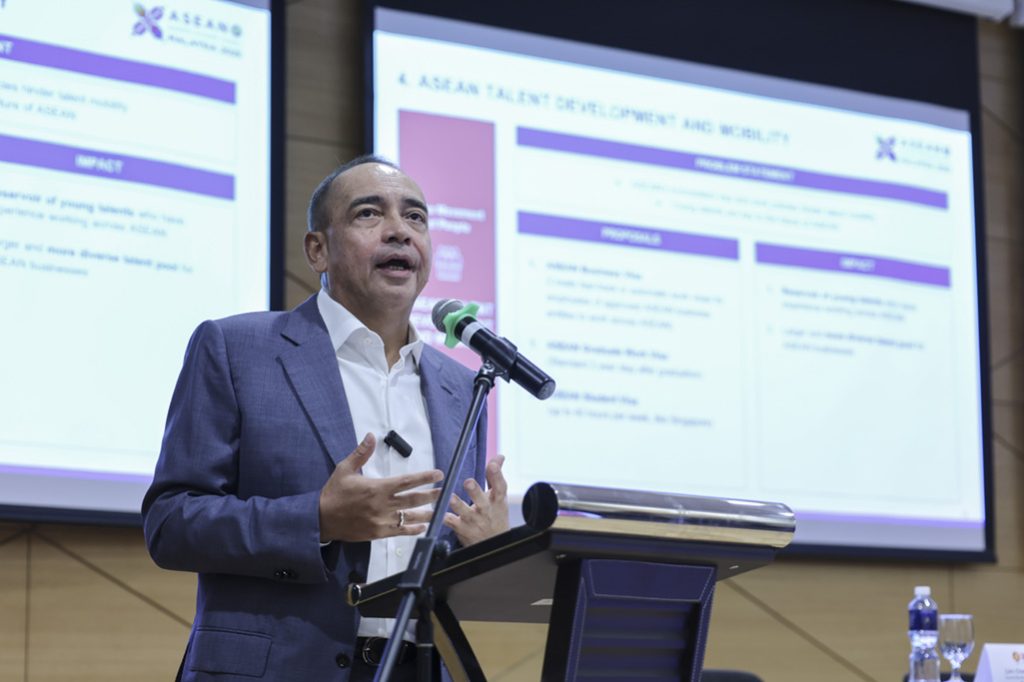
ASEAN-BAC pushes 12 key initiatives for regional growth
The post KL Declaration, Timor-Leste, Myanmar take centre stage appeared first on The Malaysian Reserve.
